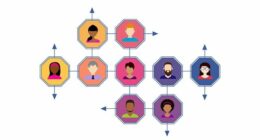Inquiry is the act of asking questions or seeking information, while research involves systematic investigation, analysis, and documentation of a topic.
TL;DR Inquiry Vs. Research
Inquiry refers to the process of seeking knowledge or understanding through asking questions, exploring various perspectives, and critically analyzing information. It is commonly used in educational settings to foster curiosity and promote deeper learning.
Research involves a more structured and rigorous approach aimed at generating new knowledge or validating existing theories. It follows a systematic methodology that includes formulating hypotheses, collecting data through experiments or surveys, analyzing findings using statistical techniques, and drawing conclusions.
What is Inquiry?

Inquiry is a fundamental process of seeking knowledge or information through questioning, investigating, and exploring. It’s the act of posing thoughtful inquiries to unravel mysteries, understand concepts, and find solutions to problems. Think of inquiry as a curious mind’s adventure into uncharted territory.
Inquiry involves asking questions that drive our curiosity forward. These questions can be broad or specific and are designed to stimulate critical thinking. They compel us to dig deeper, challenge assumptions, and seek evidence to support our findings.
Inquiry takes various forms depending on the context in which it occurs. In education settings, it often refers to student-driven investigations where learners actively explore topics of interest while developing their research skills. Scientific inquiry involves systematic experimentation and analysis to test hypotheses and uncover new discoveries.
What is Research?

Research is a systematic and organized process of gathering information, analyzing data, and drawing conclusions. It involves investigating a specific topic or question using various methods and techniques. Researchers aim to expand knowledge, solve problems, or discover new insights through their inquiries.
In research, the focus is on obtaining objective and reliable information by following a structured approach. This often includes conducting experiments, surveys, interviews, or studying existing literature. Researchers critically evaluate sources of information to ensure accuracy and validity.
Research can take place in any field – from science and technology to social sciences and humanities. It plays a crucial role in advancing our understanding of the world around us. Through research, we uncover facts, test hypotheses, develop theories, and generate evidence-based recommendations.
Researchers must be thorough in their investigations while maintaining ethical standards. They need to document their methods clearly so that others can replicate or build upon their work. By disseminating findings through publications or presentations at conferences, researchers contribute valuable knowledge to their respective fields.
Inquiry Vs. Research – Key differences
| Aspect | Inquiry | Research |
|---|---|---|
| Nature | A broader term that refers to the act of asking questions or seeking information, which can be informal and exploratory. | A more formal and structured process involving systematic investigation, analysis, and documentation of a topic. |
| Scope | Can encompass various methods of seeking information, including casual questioning, internet searches, or general exploration. | Typically involves a more rigorous and disciplined approach with specific research methodologies and protocols. |
| Purpose | Often driven by curiosity, a desire for knowledge, or a need to address a specific question or problem. | Primarily aims to contribute to existing knowledge, generate new insights, or address specific research questions. |
| Methodology | May not adhere to a strict methodology and can be flexible and open-ended. | Follows a defined research methodology, including data collection, analysis, and validation processes. |
| Formality | Typically informal and may not require structured documentation. | Involves a formal and structured process, often requiring documentation and presentation of findings. |
| Context | Can occur in various contexts, including everyday life, casual discussions, or personal exploration. | Commonly conducted in academic, scientific, or professional settings, often leading to scholarly publications. |
| Depth of Analysis | May involve surface-level exploration and may not delve deep into a topic. | Requires in-depth analysis and a thorough examination of a subject with the goal of contributing to a body of knowledge. |
| Accountability | May not have formal accountability or peer review processes. | Often subject to peer review and ethical standards, ensuring quality and validity of findings. |
| Outcomes | Outcomes can vary widely, from simple answers to gaining a general understanding of a topic. | Typically produces structured research reports, papers, or publications with detailed findings and conclusions. |
Similarities between Inquiry and Research
- Information Gathering: Both involve gathering information and seeking answers to questions or exploring a topic of interest.
- Curiosity-Driven: Both are often driven by curiosity, a desire for knowledge, or a need to solve a problem.
- Systematic Approach: Both may employ a systematic approach, involving structured methods to collect, analyze, and interpret data or information.
- Critical Thinking: Both require critical thinking skills to evaluate sources, assess evidence, and draw conclusions.
- Question Formulation: Both begin with the formulation of questions or hypotheses that guide the process.
- Documentation: Both involve documenting findings, observations, or results, often through reports, papers, or presentations.
- Empirical Observation: Both can incorporate empirical observation, experimentation, or data collection as part of the process.
- Iterative Process: Both can be iterative processes, with initial findings leading to further questions and exploration.
- Use of Sources: Both may involve referencing and citing sources to support claims or conclusions.
- Problem Solving: Both can contribute to problem-solving and expanding knowledge in various fields.
Examples of Inquiry and Research in Action
Inquiry Examples
- Casual Information Gathering: Asking a friend about their favorite travel destinations to gather ideas for your upcoming vacation.
- Internet Search: Using a search engine to look up reviews and ratings for restaurants in your area before deciding where to dine.
- Exploration of Hobbies: Trying out different hobbies like painting, gardening, or playing a musical instrument to see which one you enjoy the most.
- Customer Feedback: Collecting feedback from customers through surveys or interviews to understand their preferences and improve a product or service.
- Interview for Personal Growth: Conducting interviews with mentors or experts in your field to seek advice and insights to advance your career.
Research Examples
- Scientific Study: Conducting controlled experiments and collecting data to investigate the effects of a new drug on a specific medical condition.
- Academic Research Paper: Writing a research paper in a university setting, which involves a literature review, hypothesis formulation, data collection, analysis, and presentation of findings.
- Market Research: Analyzing market trends, consumer behavior, and competition to develop a comprehensive business strategy for launching a new product.
- Historical Research: Investigating historical documents, records, and archives to gain a deeper understanding of a particular time period or event.
- Environmental Study: Studying the impact of human activities on an ecosystem by collecting and analyzing data on biodiversity, pollution, and habitat destruction.
- Social Science Research: Conducting surveys, interviews, or experiments to explore social phenomena, such as the effects of social media on mental health or the impact of diversity in the workplace.
- Medical Research: Investigating the efficacy of a new medical treatment through clinical trials, data analysis, and peer-reviewed publications.
Image Credits
Featured Image By – StockSnap from Pixabay
Image 1 By – Photo by Markus Winkler
Image 2 By – Photo by Pixabay









